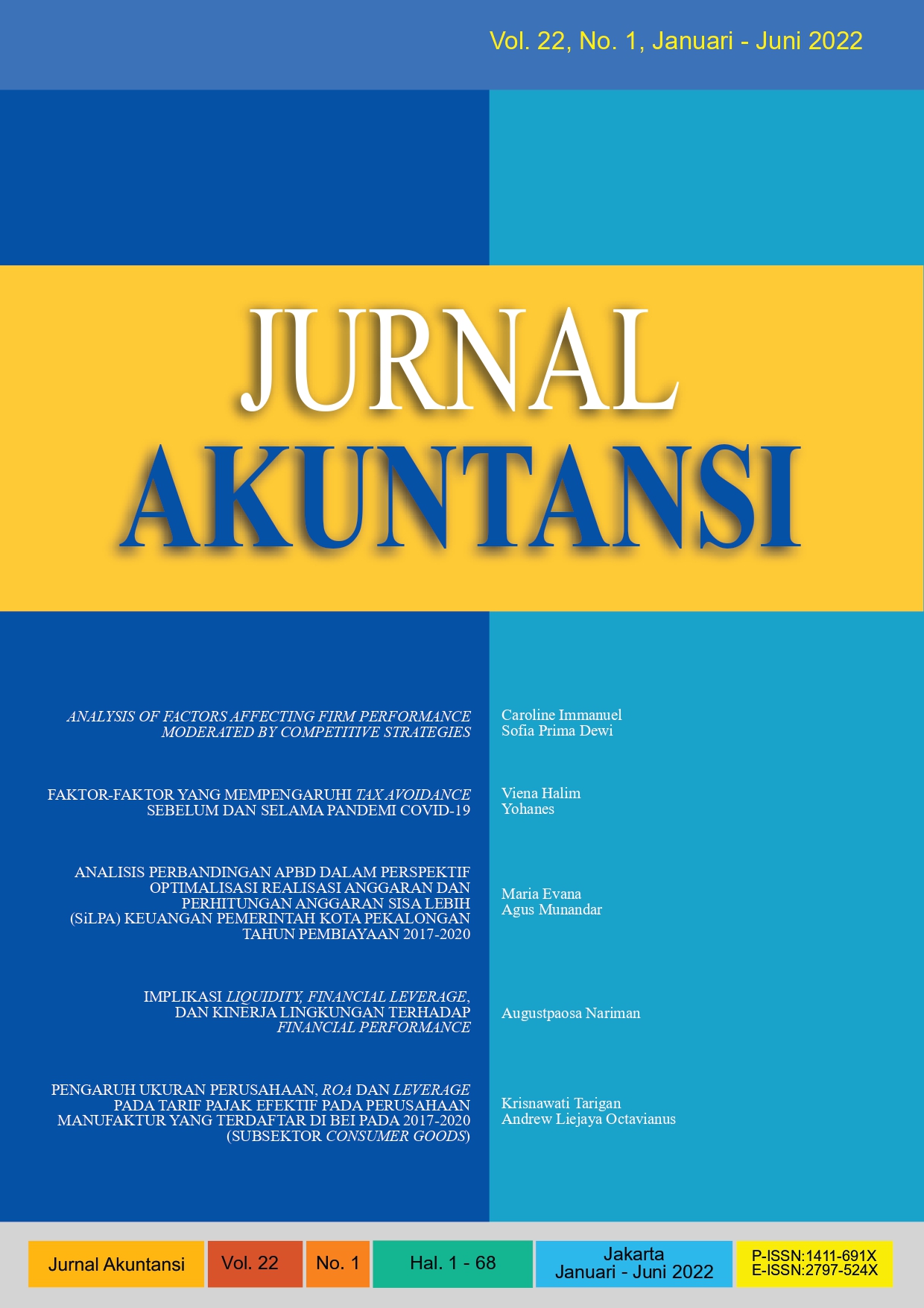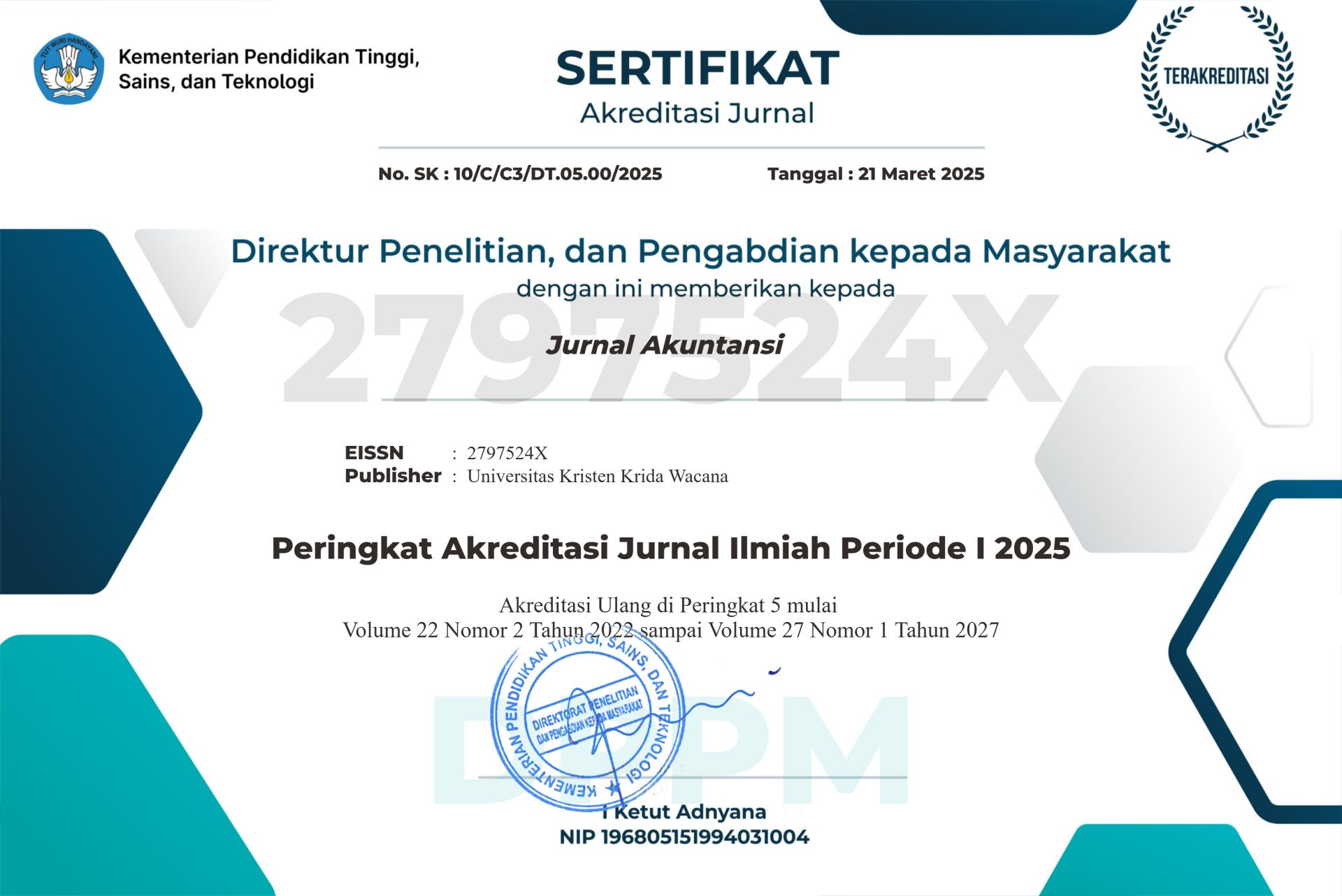FAKTOR-FAKTOR YANG MEMPENGARUHI TAX AVOIDANCE SEBELUM DAN SELAMA PANDEMI COVID-19
DOI:
https://doi.org/10.36452/akunukd.v22i1.2534Abstract
The purpose of this research is to obtain empirical evidence on these factors are the variables of commisioner independent, committe audit, profitability, leverage, company size, sales growth and tax avoidance. The population of this research is all manufacturing companies listed on the Indonesia Stock Exchange (IDX) during 2018 to 2020. There were 168 manufacturing companies that are listed from 2018 to 2020. Samples are obtained through purposive sampling method. The sample taken for this research is 70 companies, so that the total data used as the research sample was 210. The analysis method used in this research is multiple regression.This results of this research that profitability and leverage have a significant influence on tax avoidance. Meanwhile, commisioner independent, audit committee, company size, sales growth has no effect on tax avoidance. Profitability has an effect on tax avoidance because if the company has a high profit, the company will try to reduce tax expense by tax avoidance, so that the profit earned by the company can still be maximized. The results of this study are in line with agency theory which states that managers have the hope of being able to increase profits or high company profitability because of the benefits obtained, namely getting compensation from the principal (company owner). The principal does not want the company to do tax avoidance, but the manager wants to do it to keep getting optimal profit so that the manager can get compensation from the principal. Leverage has an effect on tax avoidance because the increasing level of corporate debt will increase the amount of debt from third parties, with an increase in the amount of debt it will increase interest costs and will make the tax expense paid decreases. So that the use of debt by the company can be used for tax savings by obtaining incentives in the form of interest expense which will be a deduction from taxable income. The results of this study are in line with the trade off theory which states that if a company uses debt as its financial funding, it will provide benefits to reduce the company’s tax costs, because according to the company, debt has a fixed burden, namely interest costs. Interest costs are part of the burden that reduces the company’s taxable income (deductible expense) so that using debt will provide a positive relationship with tax avoidance actions taken by the company.
Keywords: Tax Avoidance, Profitability, Leverage, Sales Growth, Size, Independent Commissioners, Audit Committe.






